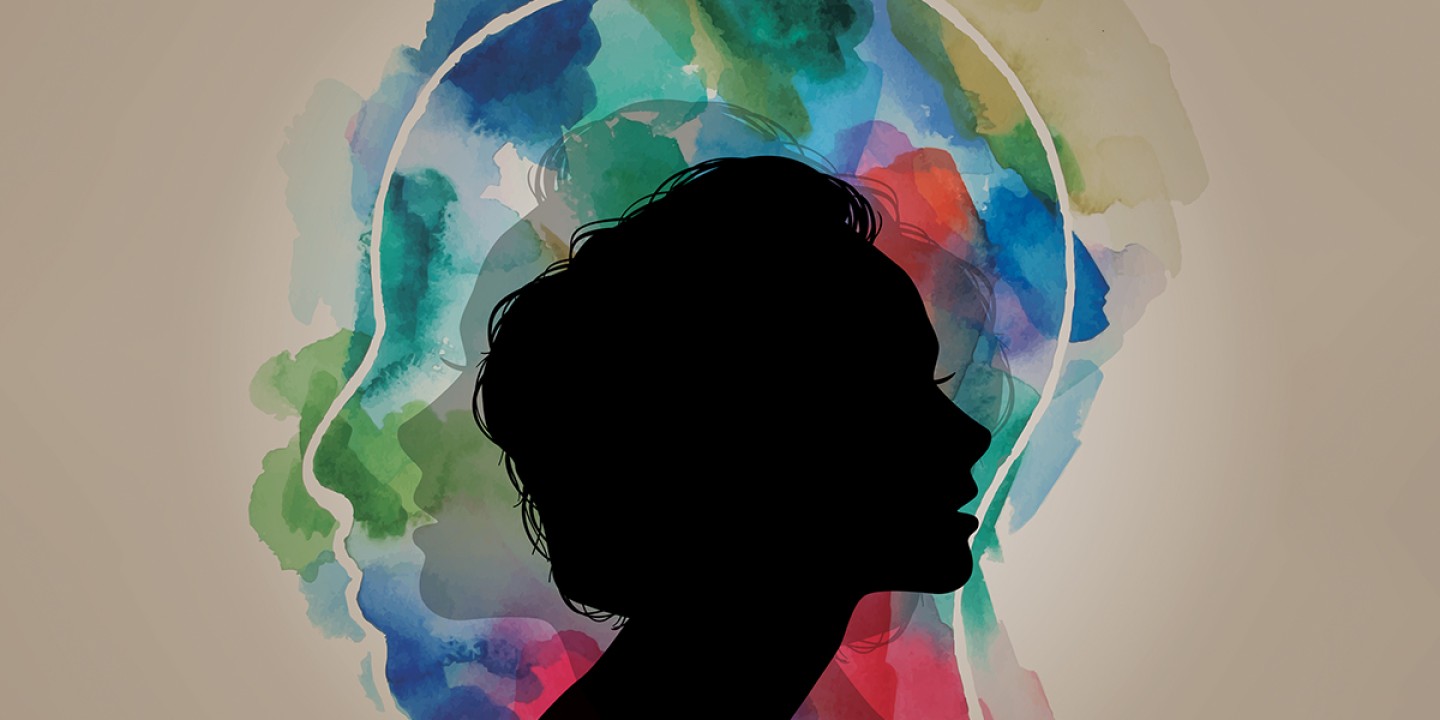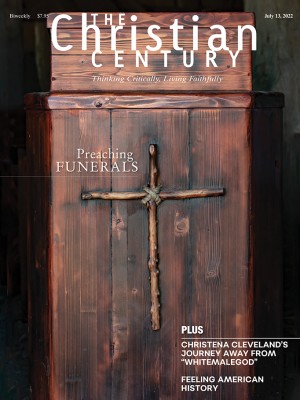Where our deep sadness and the world’s deep hunger meet
Sometimes vocation springs not from joy but from trauma and grief.

In spring 2009, I taught what I thought was going to be my last class ever. The mysterious breaking of two vertebrae in my back had led to a stage IV cancer diagnosis, and the year had begun with me resigning from virtually every aspect of my life. I went on sabbatical the following fall, intending to try to bring closure to my life before it ended.
Instead of dying, however, I went into my first remission. I’m not naturally an anxious person, but life-threatening illness can mess with one’s equilibrium. As my sabbatical came to an end, I didn’t know if I could handle returning to teaching. What if I signed back up for life only to have to resign from it all again?
Read our latest issue or browse back issues.
Stanford neurosurgeon Paul Kalanithi, author of the heartbreakingly beautiful book When Breath Becomes Air, lived just a few years after his diagnosis with incurable cancer. In that short period of time, he too went into remission and gained back much of his strength. His oncologist suggested he go back to working as a neurosurgeon. When he reminded his doctor he was dying, she responded, “True. But you’re not dying today.”
Of course, we’re all dying. But some of us know this more acutely than others. When that’s the case, it can be really hard to opt back into the life you’ve already had to opt out of. What does it mean to integrate trauma and death into our lives, even to make it part of our vocation, to figure out ways to go on?
In conversations about vocation, Christians often refer to Frederick Buechner’s observation in his book Wishful Thinking: “The place God calls you to is the place where your deep gladness and the world’s deep hunger meet.” This has been a sweet spot for many of us who have come to see our calling as the place where our passions, our joy, and our gifts can be put to work in service of the suffering and needs of the world. But now, in my fourth remission living with incurable cancer, I know that conversations about vocation must also make space for the deep sadnesses that fill our lives. Our grief, too, can and does intersect with the world’s hunger.
We don’t talk of vocation in terms of sadness, perhaps because we often lack the language to talk about what we’ve been through and how our bodies respond in divergent ways to traumatic events. Theologian Shelly Rambo defines trauma as “the suffering that remains.” I like this definition because it extends the language of trauma to those without a diagnosis of post-traumatic stress disorder, a disorder that can be debilitating and life-threatening. Invoking this language can open up ways for people without PTSD to talk about their deep sadness and how it relates to their sense of meaning and place in the world.
People living with trauma often try to hide such emotions, retreating from relationships in an attempt to protect themselves. Theologian Beverly Wallace writes that the stress of a traumatic event is often so great “that it cannot be defended against, coped with, or managed well. The event stunts and often immobilizes. Coping skills are frozen; defense mechanisms fail. When a person experiences a traumatic event, the survival response is triggered, causing the person to fight, flee or freeze.” We might feel numb, sad, depressed, exhausted. We can be combative and disagreeable, tired and disconnected.
Our particular historical moment has increased the urgency of framing vocation in terms of sadness and trauma. The pandemic has opened many of us to vocations we didn’t choose. Many of us had never taught or worshiped online before or conducted programs, businesses, or churches remotely. While there has been great innovation and impressive pivoting, it’s important that we acknowledge and name the losses. In tandem, White Americans have experienced a collective awakening to the intergenerational trauma around systemic racism in the United States—trauma that Black Americans have long felt.
Wallace uses the story of the infant Moses to reflect on the trauma she and other Black Americans experienced during the aftermath of George Floyd’s murder:
Our very bodies house the unhealed dissonance and trauma of our ancestors—intergenerational transmission of trauma, trauma passed on in the expression of our DNA. Might we still be living with the traumatic experience of Jochebed, the mother of the liberator of God’s people? Might we have within us the experiences of Moses and Miriam? Might we respond as Shiphrah and Puah with the resiliency to resist engaging in activities that are harmful to a community even though communities of people are being hurt and traumatized?
Wallace’s question of how we respond to traumatic situations is a question about vocation. She insists that we pay attention to the deep sadness, to the toll that systemic injustice takes on Black bodies and spirits, and asks where we find ourselves in Moses’ story, in the story of intergenerational trauma, and in cultivating resilience amid the long legacies of race-based violence and injustice.
It’s important that in her analysis of the Moses story Wallace does not neglect the roles of Shiphrah and Puah, the midwives who refused to heed Pharaoh’s directive to kill the Hebrew baby boys. “When faced with a stress as great as the order to end newborn lives,” Wallace notes, “the midwives chose to fight back by not following this order and doing their part to protect lives of babies such as Moses.” Wallace’s focus on the vocations of Shiphrah and Puah leads us back to Buechner’s conviction that the world’s deep need shapes our vocations.
Serious health challenges, a global pandemic, the ongoing persistence of systemic racism in our institutions and communities—we didn’t choose any of this. Buechner’s memoir Telling Secrets, which chronicles his father’s drinking and suicide as well as his feelings of helplessness over his daughter’s anorexia, reveals a vision of vocation intimately linked not just to “the world’s deep need” but also to his own sadness and the sadnesses of those he loved most. Buechner struggled at times to accept that “God calls me to be this rather than that.” That’s a sentiment that likely resonates with many of us in this time and space of continuing pandemics.
Since my diagnosis, I have tried to answer the call to write and speak in ways that honestly acknowledge my pain and suffering on behalf of those who struggle to find words for their own experience. Many days I really wish I had a different vocation—that I didn’t see describing the anatomy of life with cancer as part of what I’m called to do as a theologian. Likewise my vocation as a White American Christian calls me not to shy away from the deep sadness of the insidious ways racial injustice lives, moves, and has its being in the institutions and communities of which I am a part.
I’m not advocating that all of us must share our deep sadness with others. It can be re-traumatizing to share our stories. The first time I returned to the classroom after my cancer diagnosis I had a little speech prepared about the diagnosis and the treatment I was undergoing and how we would try and carry on as best we could. But once I actually stood before my students on that first day of class, unsteady on my feet, I realized I couldn’t talk about the cancer at all. During the early months after the diagnosis, the classroom became the one cancer-free zone of my life. What a gift that was.
For people of color, the emotional labor and personal cost of rehearsing race-based trauma in the company of White people is not just exhausting but can at times feel exploitative. This is tricky and delicate work. Still, when we name the fact that our callings often encompass sadness as well as gladness, we open up space for expanded visions of vocation that relate even more profoundly to the world’s deep need.
A version of this article appears in the print edition under the title “A vocation I didn’t choose.”





